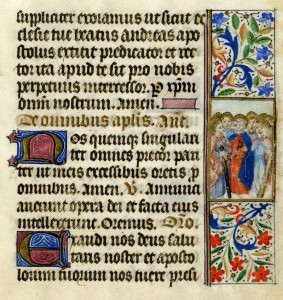Acts 17:22-31
This text is used for the Lectionary Year A on May 21, 2017.
 Many believe this passage in Acts to be a summary rather than a verbatim manuscript of a sermon Paul spoke to the leading philosophers gathered in Athens on the Areopagus. It is highly unlikely that a preacher like Paul would preach only about a two-minute sermon when given the opportunity to stand before the most highly recognized court of philosophical influencers and worldview shapers of his day. This message he spoke in Athens, while highly criticized by biblical scholars and theologians throughout history, is one that brilliantly shows Paul understanding his audience as he attempts to live by his own strategy to become “all things to all people.” (1 Corinthians 9:22)
Many believe this passage in Acts to be a summary rather than a verbatim manuscript of a sermon Paul spoke to the leading philosophers gathered in Athens on the Areopagus. It is highly unlikely that a preacher like Paul would preach only about a two-minute sermon when given the opportunity to stand before the most highly recognized court of philosophical influencers and worldview shapers of his day. This message he spoke in Athens, while highly criticized by biblical scholars and theologians throughout history, is one that brilliantly shows Paul understanding his audience as he attempts to live by his own strategy to become “all things to all people.” (1 Corinthians 9:22)
After Paul had engaged with the people of Athens day after day in the marketplace sharing ideas about Jesus and the resurrection (Acts 17:17-18), he was brought before the Areopagus to explain his teachings (Acts 17:19-20). The Areopagus was an esteemed place and group who gathered as a sort of court of philosophical experts of that day based in Athens. From the 5th century BC Athens was the primary city of influence as it pertained to shaping the culture and the philosophical thought patterns of the ancient world with the Areopagus being the hub from where such influence emanated. When Paul was invited to share his case about Jesus and the resurrection to the Areopagus, this was a signal of honor for Paul, since only the most learned lecturers and scholars were invited to address the court, whose main job it was to determine religion and philosophy for the masses.
Paul’s sermon receives criticism by some because he never once explicitly mentions Jesus by name in this text. Some believe Paul later regrets his philosophical approach to his sermon among the Areopagus as the basis for what he wrote to the church at Corinth in 1 Corinthians 2:1-5. Nonetheless, Paul’s preaching in Athens was used by God to open doors and hearts for further conversation about the gospel that did lead both men and women to repentant saving faith in Jesus (Acts 17:32-34).


 “You brood of vipers!”
“You brood of vipers!”